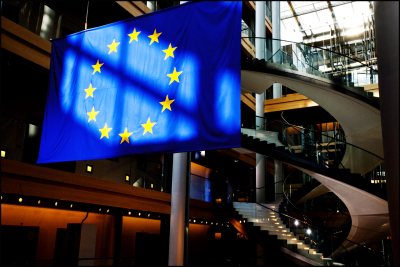In the past couple years, scandals involving elected and unelected officials of the European institutions have shed light on the cracks and loopholes in the upholding of the codes of conduct and ethical norms. Issues related to financial disclosures, conflicts of interest, side jobs, revolving doors showcase a severe lack of scrutiny and accountability, discrediting the EU institutions, agencies, policy-makers and their staff. A stronger source of ethical authority is necessary to restore the trust of citizens, ensure the respect of the principles and values on which the EU was founded, and legitimise the power devolved to the institutions.
Currently, the MEPs have a self-regulatory approach to ethical evaluations, the European Commission has an ‘Independent Ethical Committee’ but that acts solely as an advisory body and is appointed by those that is meant to monitor, and the staff of each EU institution is covered by a different Appointing Authority. The creation of a sole EU body responsible for ethics standards is necessary in order to ensure a legitimate system of checks and balances, of accountability; in other words, to ‘walk the talk’. This is particularly critical in the midst of a global pandemic, a time during which citizens expect the EU to act in their interests and deliver, and that so far, have only seen a bumpy rollout of the vaccine in the face of intense COVID-fatigue.
Such a body would converge and unify the various European institutions under a common set of principles and values and, most importantly, act as a reliable and strong source of accountability ensuring integrity and transparency. This is an entity that Transparency International EU has called for for several years and was made a priority by the European Commission President, Ursula von der Leyen, at the start of her mandate.
Committees of the European Parliament produced studies to determine what competences such a body should have. Notably the study by the Committee on Constitutional Affairs included an evaluation of the limits to current ethical authorities in European institutions, as well as a comparative analysis of the ethical authorities in France, Ireland and Canada. Although these are national ethical authorities, they serve as examples from which limits and best practices were analysed. The study by the committee also examined how these best practices could be translated to the EU frame and applied at this level.
Transparency International EU fully agrees with the conclusions of these studies and highlights the need to learn from best practices of existing ethics bodies at national level.
In essence, we believe that an effective Independent EU Ethics body must:
Address the existing weak enforcement of the rules due to the current system of peer-sanctioning/self-regulation. This can be achieved by:
- Ensuring its independence in terms of staff and budget
- Empowering it to initiate investigations on potential breaches of the rules
- Giving it the ability to pass binding sanctions when necessary
End the existing fragmentation of the ethics system at EU level by:
- Replacing existing ethics committees
- Harmonising ethics rules
- Including both elected officials and EU staff in its personal scope
- Working in a complementary fashion with other oversight bodies, such as the European Ombudsman and OLAF
- Working closely with units in the institutions working on ethical issues
These own initiative reports will soon be voted on by both the Legal Affairs and Constitutional Affairs Committees of the European Parliament.






